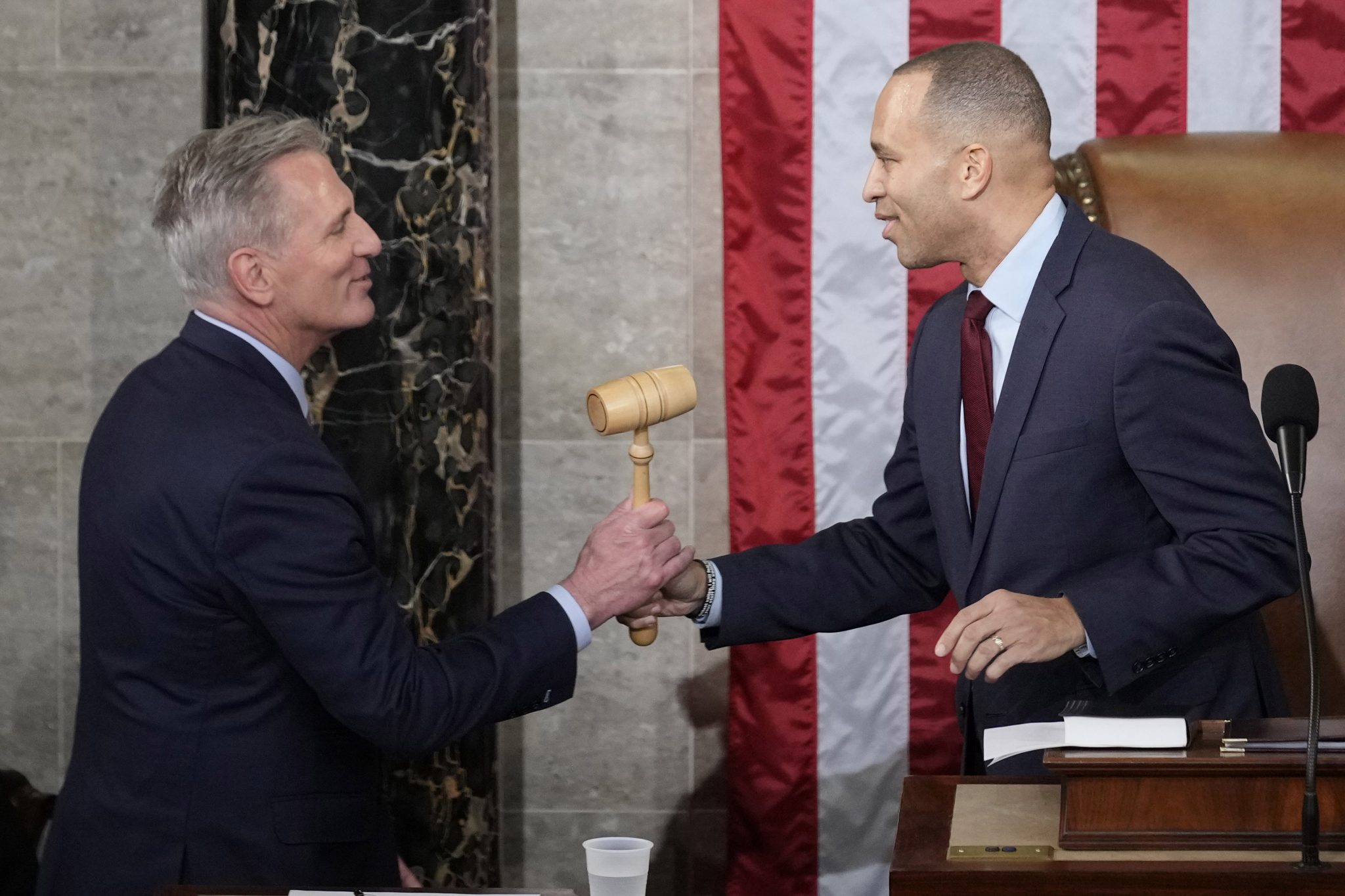Kevin McCarthy is finally the House speaker, but at what costs?
McCarthy obtained the gavel after 15 rounds of voting and making several concessions to Republican holdouts.

Incoming House Speaker Kevin McCarthy of Calif., receives the gavel from House Minority Leader Hakeem Jeffries of N.Y., on the House floor at the U.S. Capitol in Washington, early Saturday, Jan. 7, 2023.
It took over half a week, but after 15 rounds of voting, the 118th Congress officially began with a new Speaker of the House in Republican Kevin McCarthy.
Early Saturday morning, McCarthy received enough votes to officially hold the gavel, but the path was not easy. McCarthy faced stiff opposition from the hard-right members of his party, who resisted his nomination with various grievances, seeing him as an establishment figure who is not committed to their ideals.
Because of the razor-thin majority Republicans have in the House, a group of 20 Republicans were able to block McCarthy’s election, causing a delay the likes of which we have not seen since 1859 – over 160 years ago.
After days of negotiations, McCarthy reportedly has made numerous concessions to members of the far-right Freedom Caucus in order to obtain the votes needed to secure the gavel — and begin the term as the top-ranking member of the House and the third person in line for the presidency.
“McCarthy agreed to allow a single lawmaker to call, at any time, a snap vote that could decide his ouster.” — Catie Edmondson, NYT reporter
Listen: Kevin McCarthy is finally the House speaker, but at what costs?
Guests
Catie Edmondson is a reporter in the Washington D.C. bureau of the New York Times covering Congress. She states hard-right lawmakers voted in McCarthy, but did so while making it easier to oust him from the position.
“McCarthy agreed to allow a single lawmaker to call, at any time, a snap vote that could decide his ouster,” says Edmonson.
Wendy Schiller is a professor and chair of political science, and a professor of International and Public Affairs at Brown University. She believes southwest and southeast Republicans are more ideological than their northern and midwestern peers.
“The chaos, or the fighting you’re going to see, is not just because a couple of people are getting up and holding up things. It’s because there are different policy goals now in the Republican Party and there’s no mechanism for them to deal with it,” Schiller says.

